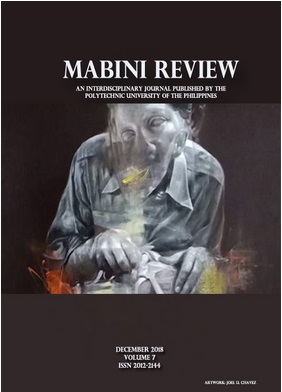Peirce’s Ethics: Problematizing the Conduct of Life
DOI:
https://doi.org/10.70922/er8bgj11Keywords:
Peirce, Ethics, Pragmatism, U.S Colonization, PoliticsAbstract
Charles Sanders Peirce's ethics is based on his pragmaticist theory of meaning elucidated by his phenomenology and its transcoding into practice. An example of how meaning acquires practical effect is cited from Peirce's lecture on signs and their interpretation. His anti-imperialist stance against U.S. colonization of the Philippines has never
been discussed before. This is the first time Peirce's politics is manifested in conjunction with his anti-nominalist explanation of signs and their ethical implications.
Downloads
References
Downloads
Published
Issue
Section
License
Copyright (c) 2018 Epifanio San Juan (Author)

This work is licensed under a Creative Commons Attribution-NonCommercial 4.0 International License.
Articles published in the MABINI REVIEW will be Open-Access articles distributed under the terms and conditions of the Creative Commons Attribution-Noncommercial 4.0 International (CC BY-NC 4.0). This allows for immediate free access to the work and permits any user to read, download, copy, distribute, print, search, or link to the full texts of articles, crawl them for indexing, pass them as data to software, or use them for any other lawful purpose.


